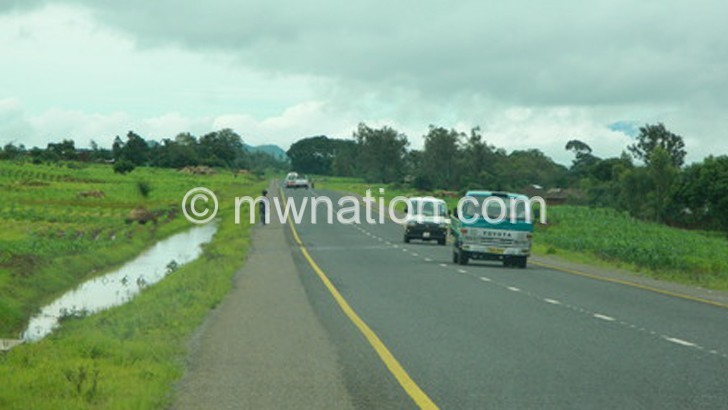AfDB delves into lapses of infrastructure projects
The African Development Bank (AfDB) has decried the poor relationship between civil society organisations (CSOs) and implementing agencies (IAs) of the pan-African bank’s infrastructure development projects.
In its latest Safeguards and Sustainability Series of AfDB Involuntary Resettlement Policy, Review of Implementation Report, the bank said generally government agencies tend to ignore CSOs altogether in project implementation.
According to the report, which was prepared based on data collected from Malawi, Tunisia, Ghana, Kenya and Cameroon, one of the AfDB’s involuntary resettlement (IR) policy requirements is participation of both affected population and host communities, including CSOs in the resettlement, planning and implementation.

the way to the Blantyre-Zomba Road which was funded by AfDB
Said the report in part: “CSOs involvement in resettlement projects is constrained by several factors such as the negative attitudes of IAs and governments; lack of awareness of the AfDB’s policy; inadequate and poorly timed information about projects and financial resource constraints. They [CSOs] lack financial resources to do wide consultations and sensitisation activities.”
The report said the bank has no clear avenue for engaging the public through the country office, nor does it have a public consultation strategy in the field in which the project is being implemented.
“Project affected persons with no recognisable legal property rights are usually not fully informed and effectively engaged in all stages of the project cycle.
“Many who are relocated receive only information on the need to relocate but are not consulted thereafter.” reads the report.
AfDB said in projects involving involuntary resettlement, IAs are responsible for information disclosure during planning and associated socio-economic studies.
In all the regional member countries studied, project affected persons (PAPs) and members of the broader community were informed through public meetings and household surveys, said the report.
The bank has also bemoaned delays in giving compensation across all member countries, which it says causes uncertainty to affected population because they cannot carry out domestic developmental activities or plans in anticipation of relocation.
“In Malawi’s Mzuzu-Nkhata Bay Road Rehabilitation Project, a cut-off date of 15 June 2012 was established. However, up to the time of this report, no compensation had been given to the PAPs and the PAPs did not know their entitlement,” reads the report, adding that the project affected 86 people who preferred to be given cash compensation for individual losses.





